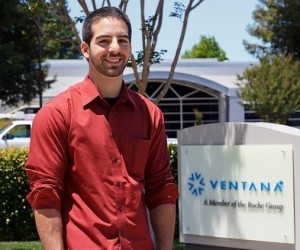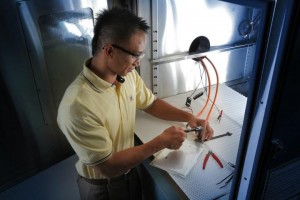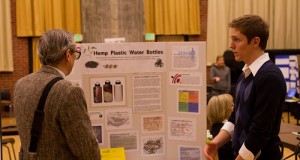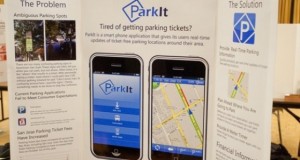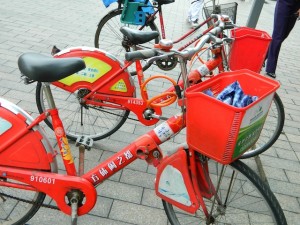By Amanda Holst, Public Affairs Assistant
(This summer, SJSU Today hits the road, visiting students and recent grads on the job across the country and around the world. Our Spartans at Work series continues with the Class of 2011′s Alex Kalogrides.)
It’s only been eight months on the job for Alex Kalogrides, ’11 MBA, but he feels his work adds to the impact his company makes on Silicon Valley and beyond.
“We are a very innovative company; in the business unit where I work in, we develop new imaging and software solutions that are improving cancer diagnostics around the world,” Kalogrides said.
Kalogrides works at Ventana Medical Systems in the Digital Pathology and Workflow Unit, which develops instruments to turn glass pathology slides into digital images, software to manage these images, and algorithms to help analyze the images.
Ventana, a member of the Roche Group, focuses on accelerating the discovery and development of new cancer tests that allow pathologists to analyze patient biopsies at the molecular level to help determine the best course of therapy for each individual patient.
As an online community manager, Kalogrides works on web and mobile development and manages a forum-platform website. Kalogrides says his strategic thinking skills, class diversity and project management training from SJSU’s MBA One Program has prepared him for his job today.
“Being in a culturally diverse class setting was an important experience for me as I regularly collaborate with colleagues around the world in my job,” Kalorides said.
What does Kalogrides love the most about his job?
“The fact that everything is so new and talking to customers about new products,” he said.
He also loves that what he does attacks a real problem in the world.
“We are working toward making more accurate, more rapid diagnoses for cancer patients,” he explained. “That’s something you feel good about each day.”
